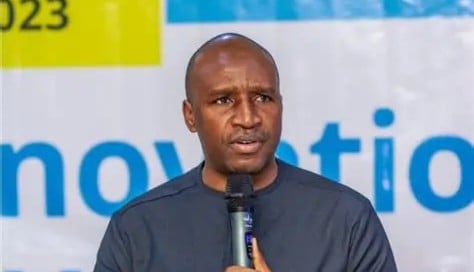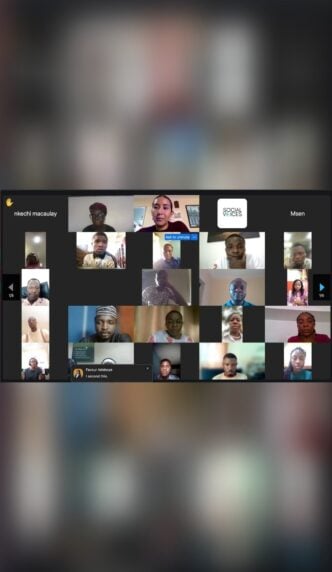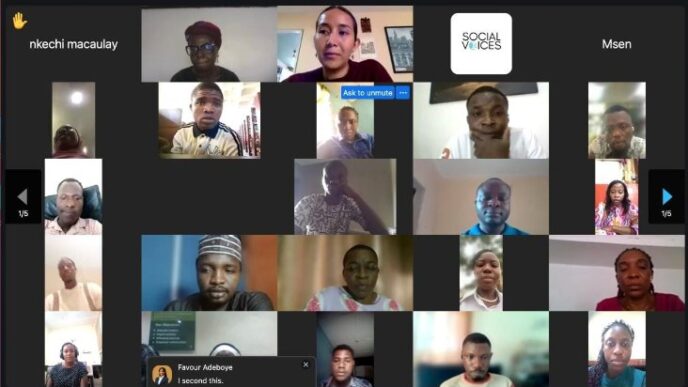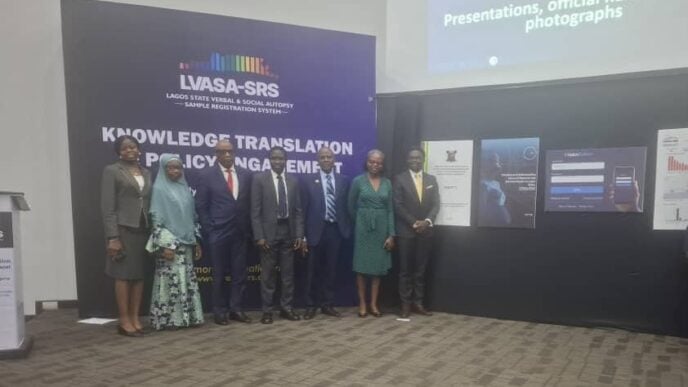Otse Ogorry, country director of the Palladium-led Data for Implementation (Data.FI) Project, says Nigeria’s drive to establish a unified digital health system will enhance patient care.
Speaking at a stakeholders’ meeting in Abuja, Ogorry said Nigeria digital in health initiative (NDHI) would transform the nation’s healthcare and ease the burden on healthcare workers.
Unveiled in May by Ishaq Salako, minister of state for health and social welfare, the NDHI is intended to integrate digital technologies into a cohesive system to enhance healthcare delivery nationwide.
Central to the NDHI is the national digital health architecture (NDHA), which is a technical framework to standardise infrastructure, ensure secure information exchange, and provide seamless access to patient records across platforms and facilities.
Advertisement
The initiative is a partnership between the federal ministry of health, healthcare providers, and stakeholders in the public and private sectors.
“Its unique importance lies in the fact that it aims to build a unified, interoperable health information structure that supports data exchange and reduces workload for healthcare workers and patient care, ultimately improving health outcomes for all Nigerians,” Ogorry said.
“It is designed to create a system that caters to the needs of stakeholders, has an architecture that can integrate with existing systems in Nigeria, and remains flexible enough to accommodate future technological advancements.”
Advertisement
Ogorry said many of the goals set out in the NDHI are already being implemented through data. FI’s flagship platform, LAMISPlus, is a homegrown electronic medical record (EMR) system designed on a modular framework and currently operational in hundreds of health facilities across the nation.
“A particularly encouraging development is that many of the initiatives outlined in the government’s presentation are already being implemented by Data.FI, a project I currently lead,” he said.
He said LAMISPlus is an open-source modular software and electronic medical record system suitable for all types of healthcare services in different settings to support the management of patient-level data.
Ogorry said originally developed to support the HIV programme, the system has evolved over the years and has the potential to be scaled to other disease areas.
Advertisement
“Imagine LAMISPlus EMR as a large house with twenty rooms, though only five are currently in use. Each room represents a health service module like HIV treatment, tuberculosis treatment, hepatitis management, and so on. As the need grows, more rooms (or modules) can be added as needed without the need to redesign the whole house or alter the structure of the house,” he said.
Addressing concerns about infrastructure, Ogorry said, while challenges exist, they are not insurmountable.
“About electricity and internet access, and whether digital records can realistically work in Nigeria. I believe they can,” he said.
“There is the option of utilising solar energy and inverters to help solve the challenge of low or lack of power supply to these health facilities. Though capital intensive, it is the way to go, especially in areas not connected to the national electricity grid.”
Advertisement
Ogorry said one of the major promises of the NDHA is its ability to enable access to patient information across multiple facilities, adding that it would reduce redundancies and significantly improve the quality of care.
“Currently, each hospital maintains its own records. One challenge we have in Nigeria is that if I visit hospitals A, B, and then C, those records are not linked,” he explained.
Advertisement
“But with a unified system and a unique identifier, all the other hospitals I have visited and accessed healthcare from can be available to the doctors in a secure format so that the doctor on call can make informed decisions.”
He advised that investments in infrastructure must go hand in hand with investments in human capacity.
Advertisement
“Building the capacity of health workers to be able to use digital systems is very key to the success of this initiative,” he said.
The Nigerian health system has faced a lot of challenges and continues to face these challenges. The issues are broad and numerous, but I want to focus on three fundamental ones.”
Advertisement
Ogorry added that Nigeria can build an efficient healthcare system by embracing local innovations like LAMISPlus and strengthening partnerships across sectors.











